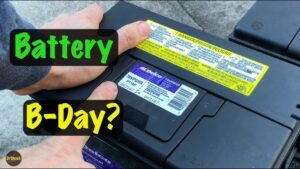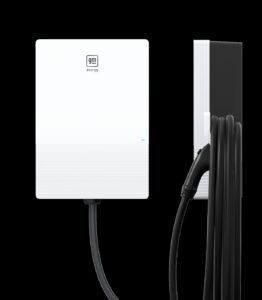Car battery draining fast? Wondering what could be the culprit? Well, look no further! In this article, we will dive into the key factors that contribute to draining a car battery quickly. Whether it’s leaving the headlights on, a malfunctioning alternator, or a faulty electrical component, understanding what drains a car battery fast is essential for every car owner. So, let’s delve into the most common causes and solutions to keep your car battery charged and ready to go whenever you need it.
What Drains a Car Battery Fast
There’s nothing more frustrating than getting into your car, turning the key, and hearing that dreaded click of a dead battery. A dead car battery can ruin your day and leave you stranded. But what causes a car battery to drain quickly? In this article, we’ll explore some of the most common culprits that can drain a car battery fast. Understanding these factors will help you prevent battery drain and keep your vehicle running smoothly.
1. Electrical Accessories
One of the most common causes of a drained car battery is leaving electrical accessories on when the engine is off. Here are some common culprits:
– Interior lights: Forgetting to turn off the lights inside your car can quickly drain the battery. Make it a habit to double-check that all lights are off before exiting your vehicle.
– Headlights: Leaving your headlights on, especially overnight, can severely drain the battery. Always double-check that they are off.
– Radio and entertainment systems: If you enjoy listening to music while waiting in your car, be mindful of leaving the radio or entertainment system on for extended periods without the engine running. These systems draw power from the battery and can drain it relatively quickly.
– Power accessories: Some cars have power accessories, such as power windows, power seats, and power mirrors. Leaving these accessories active when the engine is off can lead to battery drain.
2. Faulty Charging System
Another common culprit for a fast-draining car battery is a faulty charging system. The charging system consists of the alternator, voltage regulator, and battery. If any of these components fail, they can prevent the battery from properly charging. Common issues include:
– Alternator problems: The alternator is responsible for charging the battery while the engine is running. If it becomes faulty, the battery will not receive sufficient charge, leading to quick drainage.
– Voltage regulator issues: The voltage regulator ensures that the right amount of power is sent to the battery for charging. A malfunctioning voltage regulator can cause an overcharge or undercharge, impacting the battery’s overall health.
– Battery defects: Sometimes, a defective battery can masquerade as a charging system issue. If you’ve ruled out problems with the alternator and voltage regulator, it’s worth having the battery inspected for any defects or internal damage.
3. Parasitic Battery Drain
Parasitic battery drain occurs when something in your vehicle is drawing power from the battery even when the engine is off. Identifying and addressing this type of drain can be a bit more challenging. Some common causes include:
– Faulty electrical wiring: Damaged or improperly installed wiring can create a constant draw on the battery, draining it quickly over time. If you suspect this is the case, it’s best to consult a professional mechanic to locate the source of the issue.
– Malfunctioning electrical components: Certain electrical components, such as a malfunctioning alarm system or a stuck relay, can cause parasitic battery drain. An inspection by a qualified technician can help identify and fix these issues.
– Aftermarket modifications: If you’ve recently added aftermarket modifications to your vehicle, such as a new stereo system or lighting upgrades, they may not have been installed correctly. These modifications can inadvertently draw significant power from the battery, causing it to drain rapidly.
4. Extreme Temperatures
Extreme temperatures, both hot and cold, can impact the performance and lifespan of your car battery. Here’s how:
– Hot weather: High temperatures can accelerate the chemical reactions inside the battery, causing it to lose its charge more quickly. Additionally, excessive heat can cause internal damage to the battery, reducing its overall capacity.
– Cold weather: Cold temperatures can hinder the battery’s chemical reactions, making it less efficient at storing and delivering power. This can lead to decreased performance and faster drainage during cold weather conditions.
5. Aging Battery
Lastly, an aging battery is more prone to fast drainage. Over time, a battery’s ability to hold a charge gradually diminishes. If your battery is several years old, it may be time for a replacement. Regular battery maintenance and periodic inspections can help identify signs of aging and prevent unexpected battery failure.
Knowing what drains a car battery fast is the key to preventing battery-related issues. Remember to always turn off electrical accessories when the engine is off and keep an eye out for any signs of a faulty charging system. Address parasitic battery drain promptly, especially if you suspect faulty wiring or malfunctioning components. Consider the impact of extreme temperatures on battery performance and be proactive about battery maintenance.
By taking these preventative measures, you can ensure a longer lifespan for your car battery and avoid the frustration of being stranded with a dead battery. Keep in mind that if you ever experience persistent battery drain or electrical issues, it’s best to consult a professional mechanic who can diagnose and resolve the problem effectively.
Frequently Asked Questions
What are the common factors that drain a car battery quickly?
Several factors can drain a car battery quickly:
- Leaving headlights or interior lights on for an extended period
- Leaving accessories such as radios, air conditioning, or chargers plugged in while the engine is not running
- A faulty charging system that fails to charge the battery properly
- Extreme temperatures, especially cold weather, which can reduce a battery’s efficiency
- Aging battery that can no longer hold a charge effectively
- Parasitic drains caused by faulty electrical components or wiring
Can a car battery drain without any visible signs?
Yes, a car battery can drain without any visible signs. This is often caused by parasitic drains, where faulty electrical components or wiring continue to draw power even when the car is not in use. These drains may not be immediately apparent, but they can gradually deplete the battery over time.
Does cold weather affect car batteries?
Yes, cold weather can significantly affect car batteries. Cold temperatures can reduce a battery’s capacity, making it harder for the battery to provide the necessary power to start the engine. Additionally, cold weather increases the thickness of engine oil, making it harder for the engine to turn over and placing additional strain on the battery.
How can I prevent my car battery from draining quickly?
To prevent your car battery from draining quickly, you can take the following measures:
- Ensure all lights and accessories are turned off when the car is not in use
- Avoid using power-consuming accessories while the engine is off
- Regularly inspect and maintain the charging system to ensure it is functioning correctly
- Consider using a battery tender or maintainer to keep the battery charged when the car is not in use for extended periods
- Replace an aging battery before it starts to lose its efficiency
How long does it take to recharge a completely drained car battery?
The time it takes to recharge a completely drained car battery depends on several factors, including the battery’s capacity and the output of the charging device. On average, it can take several hours to fully recharge a dead battery using a standard charger. However, it is recommended to consult the battery manufacturer’s guidelines or seek professional advice for the specific charging time required for your battery.
Final Thoughts
Car batteries can drain quickly due to several factors. One common culprit is leaving the headlights or interior lights on for extended periods. Another drain can be caused by a malfunctioning alternator, which fails to keep the battery charged while the engine is running. Additionally, electrical accessories like phone chargers or audio systems left plugged in overnight can deplete the battery. Extreme temperatures, especially cold weather, can also strain the battery’s performance. To prevent a drained battery, it is important to be mindful of these factors and take necessary precautions to avoid unnecessary power consumption. By paying attention to what drains a car battery fast, you can ensure its longevity and maintain a reliable power source for your vehicle.



